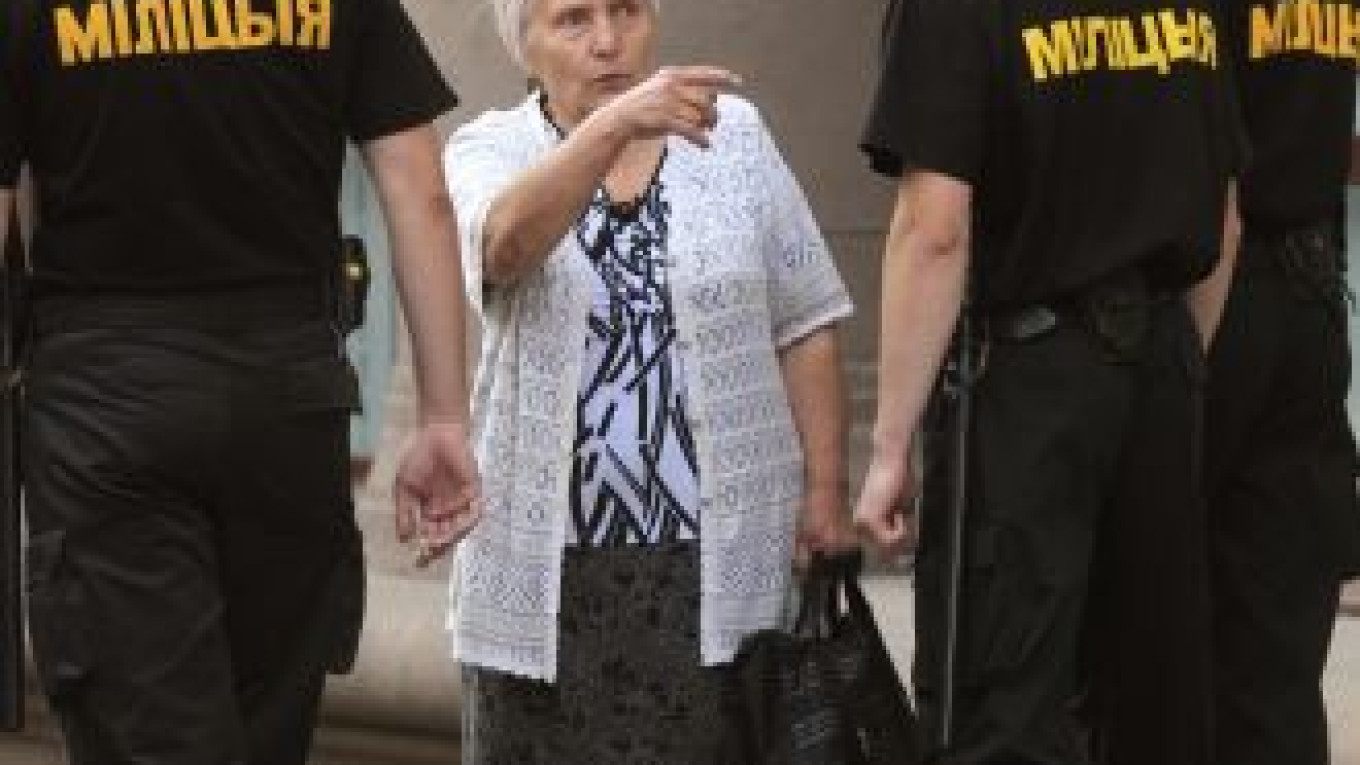ST. PETERSBURG — Russia has threatened to retaliate against Belarus after President Alexander Lukashenko said he was considering trade restrictions to conserve scarce foreign currency reserves and warned that his country needed to be ready for a "catastrophe."
Belarus' dire need to conserve its central bank reserves prompted Lukashenko to say in a marathon five-hour news conference Friday that the country could halt all but the most essential imports.
"If there is a catastrophe, we will close the borders and only buy what we need most," he said.
But Deputy Economic Development Minister Andrei Slepnyov said the restrictions would violate an agreement with Belarus' partners in a three-country customs union, Kazakhstan and Russia, that started this year.
"This is the crudest possible violation of all the agreements we achieved within the customs union," Slepnyov told reporters Saturday.
"We understand the difficulties faced by the Belarussian side, and for some time we have waited in hope," he said. "But no decisions are under consideration that take into account our interests, so we have sent a request for formal consultations."
Belarus secured a $3 billion multi-tranche support program from a Russian-led regional bailout fund this month. But it says it needs more funds and is seeking loans of up to $8 billion from the International Monetary Fund.
Finance Minister Alexei Kudrin said the transfer of a first loan tranche, worth $800 million, was being prepared for payment. But a second $440 million tranche due for payment by the end of the year could be withheld.
"It's not ruled that we could raise such a question if trade with Russia is significantly restricted," Kudrin told a news briefing.
Belarus has been struggling for months to pull out of a balance of payments crisis ?€” largely fueled by Lukashenko's populist economic policies ?€” which has led to a 36 percent devaluation against the dollar.
During his news conference, Lukashenko shifted tack repeatedly, varying defiance in the face of criticism from the West with offers of diplomatic concessions in exchange for much-needed loans.
"We will overcome this situation in a few months, even without the loans we have secured," Lukashenko said. "Believe me, we will."
But he rejected calls for market reforms, blamed journalists and the Internet for stoking panic, and warned that he would not tolerate further street protests.
"We will regard any future moves [protests] as attacks not only against the authorities but also against the people." He added that he would dismiss his interior minister if further rallies took place.
Lukashenko said Belarus could soon boost its reserves by $10 billion without any borrowing. He did not say where the money would come from, but his words seemed likely to stir speculation that Belarus was about to sell off some state assets to Russia.
Diplomats said the European Union would this week target Belarussian businesses with asset freezes to force Lukashenko to end a crackdown on the opposition.
EU foreign ministers will probably agree at a meeting to sanction at least one, and possibly three companies, they said.
Also, the Vienna-based Organization for Security and Cooperation in Europe said last week in a special report that Lukashenko's government systematically uses fear, harassment, torture and blackmail to clamp down on its people.
The author of the report, French researcher Emmanuel Decaux, said Friday that Belarus could not escape growing international pressure over human rights abuses. He urged Russia to use its financial weight to push Minsk toward reforms.
Russia has complained about the treatment of Russian journalists working in the country, saying Belarus risks losing financial aid if the crackdown continues.
"I think [Russia] wants to strangle them to have more and more concessions, privatization and liberalization. But this is economic liberalization not human rights liberalization," Decaux said, adding that this could still help open up the country.
Decaux said Moscow had been less helpful in raising pressure at the OSCE, citing a debate Thursday over the report. "The Russian mission was always trying to slow things," he said.
Lukashenko sneeringly said Friday that he might free those jailed in protests against him so that they would no longer "defile" the country's prisons. But, he said, he would not be forced into it by the West.
A Message from The Moscow Times:
Dear readers,
We are facing unprecedented challenges. Russia's Prosecutor General's Office has designated The Moscow Times as an "undesirable" organization, criminalizing our work and putting our staff at risk of prosecution. This follows our earlier unjust labeling as a "foreign agent."
These actions are direct attempts to silence independent journalism in Russia. The authorities claim our work "discredits the decisions of the Russian leadership." We see things differently: we strive to provide accurate, unbiased reporting on Russia.
We, the journalists of The Moscow Times, refuse to be silenced. But to continue our work, we need your help.
Your support, no matter how small, makes a world of difference. If you can, please support us monthly starting from just $2. It's quick to set up, and every contribution makes a significant impact.
By supporting The Moscow Times, you're defending open, independent journalism in the face of repression. Thank you for standing with us.
Remind me later.


